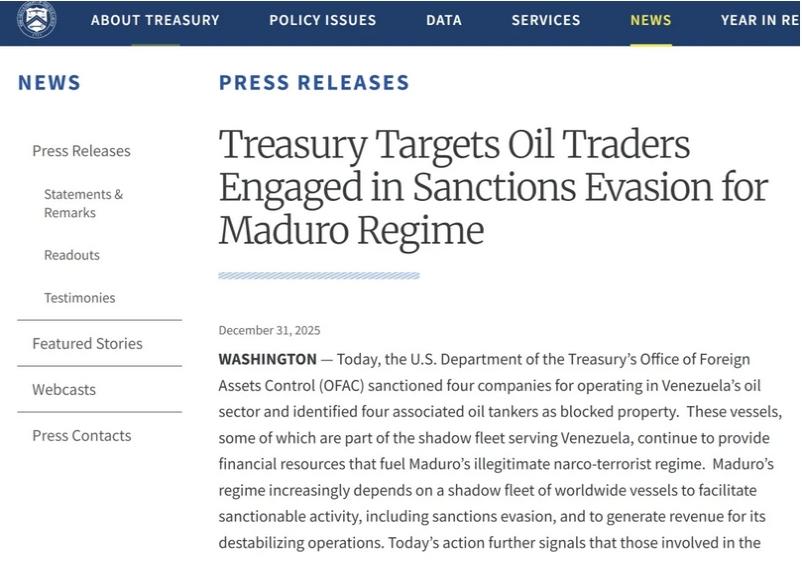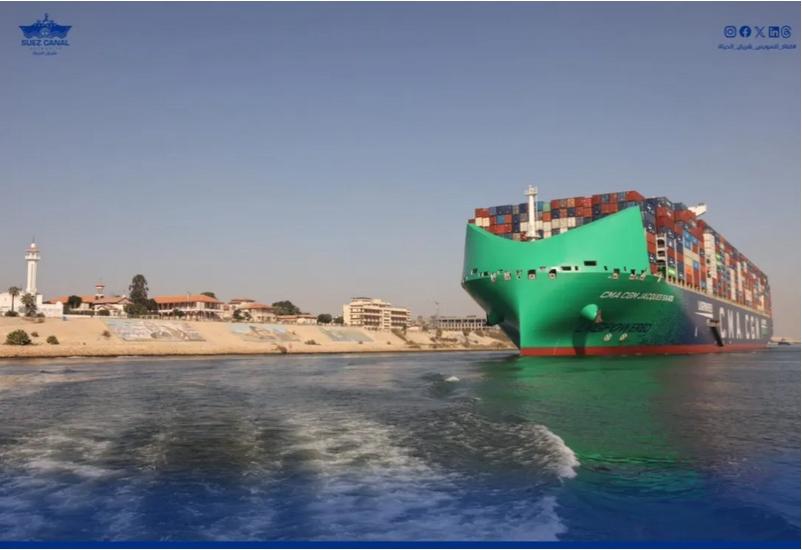
2.4.4 1999 Act – rebuttable presumption of intention
2.4.4 《1999年法案》—可反驳的意图推定
Where a contract purports to confer a benefit on a third party within the meaning of the 1999 Act, there is a rebuttable presumption that the parties to that contract intend that the third party should be entitled to claim directly against the promisor as if that third party was a party to the contract.
根据《1999年法案》的含义,如果合同声称授予第三方利益,这存在一个可以反驳的推定,合同当事方的意图是第三方应当有权直接向立约人提出索赔,好像第三方就是合同的一个当事方一样。
Guidance on the interpretation of section 1 of the 1999 Act was provided by Colman J in his judgment in Nisshin Shipping Co Ltd v. Cleaves & Co Ltd (2003). The case concerned a claim by brokers (Cleaves) for commission earned on nine charterparties which Cleaves had negotiated on behalf of the shipowners (Nisshin). Nisshin had refused to pay the commission on the grounds that Cleaves had been in repudiatory breach of its agency agreement. As Cleaves were not party to any of the charters, they commenced proceedings against Nisshin under the 1999 Act.
在Nisshin Shipping Co Ltd v. Cleaves & Co Ltd (2003) 案,[1] Colman法官的判词中对《1999年法案》第1条的解释给出指引。该案涉及的是经纪人Cleaves先生代表船东(Nisshin)洽谈了9个租船合同并索赔这9个合同赚取的佣金。Nisshin拒绝支付佣金,理由是Cleaves先生已经毁约而违反了代理协议。由于Cleaves先生并不是任一个租船合同的当事方,他是以《1999年法案》向Nisshin开始提起诉讼。
One of the arguments raised by Nisshin was that there was nothing in the charterparties which gave any positive indication that the parties intended Cleaves should have a cause of action directly against Nisshin for its recovery of commission. Rejecting this argument, Colman J affirmed that the combined effect of section 1(1) and (2) of the 1999 Act was to create a presumption that the third party did have a right of enforcement unless it could be positively shown that this was not the intention of the parties to the contract. In the Nisshin case the position was neutral (since the charterparties were silent as to whether the 1999 Act applied or not) and, accordingly, there was no reason to rebut the presumption of intent.
Nisshin提出的一个观点是,在租船合同中,并没有任何明确的迹象显示当事人的意图是Cleaves先生应当有一个诉因可以直接向Nisshin要求赔偿佣金。Colman否决了这个观点,并判决确认《1999年法案》第1条(1)款和(2)款的综合作用是提出一个假设,即第三方确实应当有权执行合同,除非这明确显示不是合同当事方的原来的意图。在Nisshin案,这一地位是中性的(因为租船合同并没有说明《1999年法案》是否使用),因此,这没有任何理由可以反驳意图的推定。
The approach taken by Colman J in Nisshin in relation to the interpretation of section 1 of the 1999 Act was approved by the Court of Appeal in Laemthong International Lines Co Ltd v. Artis (The Laemthong Glory (No 2)) (2005).
在Nisshin案,就《1999年法案》第1条解释,Colman法官所采用的方法也得到上诉法院在Laemthong International Lines Co Ltd v. Artis (The Laemthong Glory (No 2)) (2005)案中的认可。[2]
Another charterparty case, the background to the Laemthong Glory, is the common practice for the shipowner to release cargo without production of a bill of lading if, instead, the charterer provides a letter indemnifying the shipowner against any liability arising from the cargo's release. The charterer, in turn, will obtain a letter of indemnity from the receiver of the cargo. The issue before the Court of Appeal in the Laemthong Glory was whether the shipowner could enforce the rights given under the cargo receiver's indemnity directly against the receiver despite not being a party to that letter of indemnity.
这是另外一个租船合同的案例,Laemthong Glory案的背景是船东无单放货的情况。通常的做法是,若没有出示提单,相反,承租人提供给一个保函补偿船东无单放货引起的任何责任,船东就会释放船上货物。依次类推,承租人也将从货物接收人那里获得一个保函。在上诉法院,Laemthong Glory案的问题是,尽管船东不是该(收货人)保函的当事一方,船东是否能够直接向收货人要求执行收货人保函下赋予的权利?
While conceding that certain words and expressions used in the charter supported the receiver's argument that there was no intention to confer a benefit on the shipowner, Clarke LJ (adopting similar reasoning to that of Cooke J at first instance) affirmed the adoption of a wider interpretative approach which took on board the surrounding circumstances and applied commercial common sense. The receiver's letter of indemnity had expressly requested the charterer to ensure that the shipowner released the cargo without production of a bill of lading and promised to indemnify “you, your servants and agents” against liability sustained “by reason of delivering the cargo in accordance with our request”. Since the charterer could deliver the cargo only through the agency of the shipowner the Court of Appeal found that the shipowner must be one of the agents (if not the only one) to which the letter of indemnity referred. Clarke LJ was keen to impress that each case (including cases involving letters of indemnity) would turn on its own facts.
虽然(勉强)承认,在租船合同中使用的某些词语和表达方式支持接收人争论的观点:这没有意图使船东受益,Clarke大法官维持原判,(采信初审中Cooke法官类似的理由)并确认,根据当时的合约背景和商业常识,应适用更广泛的解释性的方法。[3] 收货人的保函已经明确要求承租人以确保船东在没有出示提单的情况下释放货物,以及承诺补偿‘你,你的雇员和代理人’因‘按照我们的要求交付货物’而遭受的责任损失。由于承租人只能通过船东的代理才能交付货物,上诉法院认定,船东必然是该保函中所指的代理人(如果不是唯一的)之一。Clarke大法官也强烈地注意到每一个案件(包括涉及保函的情况)都会因自身的案情事实呈现不同结果。[4]
2.4.5 Excluding the application of the 1999 Act
2.4.5 排除《1999年法案》的适用
It is clear that if parties to a sale contract wish to be certain that a broker will not be entitled to rely on the 1999 Act to enforce a claim for commission, they must expressly exclude the application of the 1999 Act by incorporating into the contract a provision to that effect.
显然,如果买卖合同的当事方意图确定经纪人将无权依赖《1999年法案》强制执行佣金索赔,他们必须在合同中并入具有此作用效果的条款以明确排除适用《1999年法案》。[5]
2.4.6 1999 Act – submission of disputes to arbitration
2.4.6 《1999年法案》—将争议提交仲裁
Where the underlying ship sale contract provides for disputes to be determined by arbitration, what is the effect, if any, on a broker's rights and obligations when commencing proceedings under the 1999 Act for recovery of commission?
若该船舶销售主合同规定争议是由仲裁进行裁决,当依据《1999年法案》开始提起佣金索赔的诉讼时,对于经纪人的权利和义务,如果有的话,会产生什么影响?
Section 8(i) of the 1999 Act provides:
“Where:
(a) a right under section 1 to enforce a term (‘the substantive term’) is subject to a term providing for the submission of disputes to arbitration (‘the arbitration agreement’); and
(b). the arbitration agreement is an agreement in writing for the purposes of Part 1 of the Arbitration Act 1996, the third party shall be treated for the purposes of that Act as a party to the arbitration agreement as regards disputes between himself and the promisor relating to the enforcement of the substantive term by the third party.”
《1999年法案》第8条第(i)款规定:
‘当:
(a). 第1条款下执行合同条款的权利(实质性条款)是受规定争议提交仲裁条款(仲裁协议)的约束;和
(b). 仲裁协议是,在《1996年仲裁法》第一部分中规定的书面形式的协议。
第三方应当被视为《1996年仲裁法》所规定的仲裁协议的一个当事方,该仲裁协议就是,就有关第三方强制执行实质性条款方面,产生的执行方本人和立约人之间的争议提交仲裁解决的协议。’
In the Nisshin case the underlying charterparties provided for submission of disputes to arbitration. For this reason the brokers (Cleaves) had, in reliance of the 1999 Act, commenced arbitration proceedings against Nisshin for recovery of their commission. Addressing the question as a preliminary issue, the arbitrators concluded that they possessed jurisdiction to hear disputes between Nisshin and Cleaves. Nisshin then applied to the Commercial Court for a declaration that the arbitrators had no jurisdiction to determine the claim.
在Nisshin案,主租船合同规定争议提交仲裁。由于这个原因,经纪人(Cleaves)依赖《1999年法案》,向Nisshin开始提起仲裁诉讼并要求索赔他们的佣金。仲裁员们把这个问题作为初步争议进行处理,并判定他们是具有审理Nisshin和Cleaves之间争议的司法管辖权。于是,Nisshin向商业法院申请宣告仲裁员(们)并不具有裁定该索赔的司法管辖权。
The issue turned on the meaning of section 8(1)(a) and specifically whether Cleaves' right to arbitrate was “subject to” there being a term in the charterparties entitling Cleaves to do so. As the charterparties were silent on the question of enforcement of claims by third parties, Nisshin argued that Cleaves did not satisfy this test and therefore had no right to refer their claim to arbitration.
该问题转到了第8条第(1)款(a)项的含义解释上,以及特别是Cleaves提交仲裁的权利是否‘取决于’租船合同中的条文而赋予Cleaves权利可以这样做。关于第三方强制执行索赔的问题,在租船合同中并没有提及,Nisshin争辩说Cleaves是不符合这个标准,因此,他没有权利将他们的索赔提交仲裁。
The Commercial Court, however, rejected this narrow interpretation of section 8(1)(a) affirming that the correct test was whether the arbitration provisions in the charterparties had a sufficiently wide ambit to cover the “substantive term” which the third party was seeking to enforce. On the facts in Nisshin the applicable “substantive term” was the promise to pay commission to Cleaves and Colman J was satisfied that Nisshin's failure to perform that obligation fell within the scope of the arbitration clause in the charterparties. In these circumstances he concluded that “Cleaves were entitled and, indeed obliged to refer those disputes to arbitration…”.
然而,商事法院,拒绝这样狭隘解释第8条第(1)款(a)项,并判决确认正确的测试标准是,在租船合同中的仲裁条款是否有足够宽的范围,以涵盖第三方试图强制执行的‘实质性条款’。根据在Nisshin案中的事实背景,可适用的‘实质性条款’是支付给Cleaves佣金的承诺,因此,Colman法官确信:Nisshin未能履行该义务是属于租船合同的仲裁条款涵盖范畴。在这种情况下,他断定:Cleaves是有权并确实有义务将这些争议提交仲裁解决……[6]
2.4.7 Brokers' right to commission held in trust
2.4.7 经纪人以信托关系要求佣金的权利
Long before the 1999 Act “dealt a long overdue body blow to the doctrine of privity of contract”, there was a judicial willingness to look more flexibly at the formal legal distinctions between contractual and professional relationships where the commercial reality indicated that such a course was justifiable.
在《1999年法案》‘解决期待已久的合同相互关系原则这一巨大的困境’很早之前,[7] 当商业事实显示这种处理方法是合理有效的情况时,司法的意愿是更加灵活地看待有合约关系和职业关系之间法律形式上的区别。
In the context of brokers' chartering commission there is a long-established principle that where charterparties are entered into on the basis that the shipowner must pay commission to a broker, the charterer shall be deemed to be the trustee of the broker's right to recover the commission. In these circumstances the charterer would be entitled to enforce a claim for commission against the owner on the broker's behalf with the broker joining the proceedings as co-claimant. In principle there is no reason why this trust relationship should not apply as between the buyer and its brokers in ship sale and purchase transactions where the sale contract provides for the seller to pay the broker's commission.
在经纪人租船佣金的情况下,长期已久的原则是,租船合同的签订是以船东必须支付给经纪人佣金为基础,承租人应该被视为经纪人佣金索赔权利的受托人。[8] 在这些背景下,承租人将有权代表经纪人向船东强制执行索赔请求权,并且经纪人也可以作为共同原告参加索赔诉讼。当买卖合同规定是由卖方支付经纪人佣金时,在原则上,这并没有理由为什么这种信任关系不可以适用于船舶买卖交易的买方和他的经纪人之间。
The trust relationship concept has not been affected by the introduction of the 1999 Act. Therefore, where a broker is not entitled to make a direct claim under the 1999 Act for recovery of commission, it might still be possible to enforce the promise either by the broker persuading the buyer to make the claim against the seller on the broker's behalf or, if the buyer declines to do so, by seeking declaratory or injunctive relief requiring the buyer to enforce the broker's claim against the seller.
信任关系的概念并没有因《1999年法案》[9] 的介入而受到影响。因此,当经纪人无权依据《1999年法案》直接索赔佣金时,经纪人仍然有可能通过说服买方代表经纪人的利益向卖方进行索赔以兑现佣金的承诺,或者,如果买方拒绝这样做,试图通过宣告判决式或禁令救济,要求买方向卖方以执行经纪人的索赔请求。
2.4.8 No privity of contract – summary
2.4.8 没有合同相互关系——总结
While the 1999 Act has had a significant impact on the privity of contract rules, the ability for S&P brokers to benefit from the 1999 Act could still be subject to limitations.
虽然《1999年法案》对合约相互关系原则有显著影响,买卖经纪人从《1999年法案》受益的能力仍可能会受到限制。
Unlike charter contracts, it is unusual for ship sale contracts to refer to brokers, by name or otherwise, and contractual exclusions of the 1999 Act are relatively common in ship sale contracts.
不像租船合同,通过名称或者其他方式,在船舶买卖合同中提及经纪人并不多见,而在船舶买卖合同中,合同规定排除适用《1999年法案》是相对普遍的现象。
In addition, even where the head broker is referred to by name in the underlying ship sale contract, sub-brokers involved in the sale transaction might not be entitled to claim their share of commission directly from the relevant principal. This might be because the sub-brokers are not identified or described with sufficient particularity for the purposes of section 1(3) of the 1999 Act (see section 2.4.3 above). If there are good reasons for not naming all brokers in the ship sale contract or a separate brokerage agreement, then from the unnamed brokers' perspective it would be preferable to make clear that commission will be paid to the named broker “for division with others” in order to constitute an “identified class” for the purposes of section 1(3) of the 1999 Act.
此外,即使在船舶买卖主合同中提及首席经纪人的名称,其他参与买卖交易的次级分经纪人可能仍然无权直接向相关委托人索要他们佣金的份额。这是因为依据《1999年法案》第1(3)条款(参看上文第2.4.3节),还不能用足够的特征对次级分经纪人加以确认或者描述。如果有充分的理由证明没有在船舶买卖合同或者单独的经纪协议中列明所有经纪人的名称,那么,为了能够成为《1999年法案》第1(3)条款规定的‘明确指定该类型的人’,从未被提名的经纪人的角度来看,这最好在协议中写明,支付给列明经纪人的佣金应同其它经纪人一起参与分享。
The lesson for S&P brokers is that wherever possible they should seek to have their right to commission clearly recorded, either in the underlying ship sale contract, or in a separate agreement with their principal. Where privity of contract rules do apply, then brokers may, in the absence of legal remedy, be reliant upon the shipowner's need to maintain a good reputation within the shipbroking community.
对于买卖经纪人的经验教训是,无论是在船舶买卖主合同中,还是在与他们的委托人签订的单独协议中,尽可能清楚地写明他们享有佣金的权利。在缺少法律救济,而合同相互关系原则适用的情况,经纪人可以依赖船东需要在经纪人群体范围内维持其良好声誉的心理,向其请求佣金。
[1] [2003] EWHC 2602, [2004] 1 Lloyd's Rep. 38, [2004] 1 All ER (Comm) 481 (hereafter Nisshin).
[2] [2005] EWCA Civ 519, [2005] 1 Lloyd's Rep. 688.
[3] This is not, by any means, the first time the courts have emphasised the need to interpret terms in the context of finding commercial sense. In Antaios Compania Naviera SA v Salen Rederierna AB [1985] AC 191, 201, Lord Diplock observed: “[I] f detailed semantic and syntactical analysis of a word in a commercial contract is going to lead to a conclusion that flouts business common sense, it must be made to yield to business common sense. ”这绝不是第一次法院强调,需要在对商业意识认定结果的背景下进行解释条款。在Antaios案,Diplock勋爵评述说:如果在商业合同中文字上的语意和句法的详细分析会带来商贸上不合理的结论,应当服从商业常识。
[4] For example, in Prudential Assurance Co Ltd v Ayres and another [2008] 1 All ER 1266, a case involving the guarantee of a sub-lease of commercial premises, the Court of Appeal had no hesitation in finding that, on the facts before them, the 1999 Act did not apply.涉及商务建筑的分租担保,上诉法院依据事实认定《1999年法案》不适用。
[5] See s. 6.3.1 of Chapter 6, below, in relation to the parties incorporating an additional clause into the sale contract which expressly excludes the application of the 1999 Act. 请参看下文第六章第6.3.1节,有关双方在买卖合同中并入附加条款明文排除适用《1999年法案》。
[6] Nisshin, para. 44.
[7] Nisshin, para. 1.
[8] Robertson v Wait [1853] 8 Ex. 299, approved by the House of Lords in Les Affreteurs Reunis SA v Leopold Walford (London) Ltd [1919] AC 801 (HL).
[9] Nisshin, para. 29.
海运圈聚焦专栏作者 魏长庚船长(微信号CaptWei)

 2017-03-23
2017-03-23 1654
1654 














